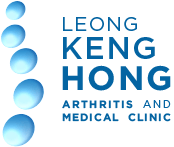Managing Psoriatic and Rheumatoid Arthritis
Arthritis has no cure, but early consultation with a rheumatologist can help manage symptoms and
reduce the risk of complications. With proper treatment, rheumatoid and psoriatic arthritis can
be controlled, slowing disease progression and supporting mobility in daily life.
Medications
For both PsA and RA, disease-modifying antirheumatic drugs (DMARDs) are often recommended. These
medicines slow joint damage and help keep inflammation under control. Your rheumatologist will
tailor treatment based on your condition and response.
Bone and Joint Therapy
Low-impact exercises such as walking, swimming, yoga or gentle stretching help maintain
flexibility and reduce stiffness. A physiotherapist can guide you through safe, targeted
exercises, while an occupational therapist can teach ways to complete everyday tasks without
overloading your joints
Surgery and Steroid Injection
If inflammation remains uncontrolled in specific joints, steroid injections can provide temporary relief. In cases of severe joint destruction, joint replacement surgery may restore mobility and reduce pain.
